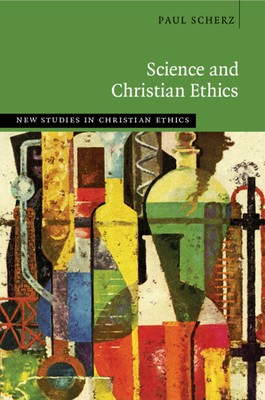
- We will send in 10–14 business days.
- Author: Paul Scherz
- Publisher: Cambridge University Press
- ISBN-10: 1108742580
- ISBN-13: 9781108742580
- Format: 15.2 x 22.9 x 1.4 cm, minkšti viršeliai
- Language: English
- SAVE -10% with code: EXTRA
Reviews
Description
There is a growing crisis in scientific research characterized by failures to reproduce experimental results, fraud, lack of innovation, and burn-out. In Science and Christian Ethics, Paul Scherz traces these problems to the drive by governments and business to make scientists into competitive entrepreneurs who use their research results to stimulate economic growth. The result is a competitive environment aimed at commodifying the world. In order to confront this problem of character, Scherz examines the alternative Aristotelian and Stoic models of reforming character, found in the works of Alasdair MacIntyre and Michel Foucault. Against many prominent virtue ethicists, he argues that what individual scientists need is a regime of spiritual exercises, such as those found in Stoicism as it was adopted by Christianity, in order to refocus on the good of truth in the face of institutional pressure. His book illuminates pressing issues in research ethics, moral education, and anthropology.
EXTRA 10 % discount with code: EXTRA
The promotion ends in 23d.15:54:32
The discount code is valid when purchasing from 10 €. Discounts do not stack.
- Author: Paul Scherz
- Publisher: Cambridge University Press
- ISBN-10: 1108742580
- ISBN-13: 9781108742580
- Format: 15.2 x 22.9 x 1.4 cm, minkšti viršeliai
- Language: English English
There is a growing crisis in scientific research characterized by failures to reproduce experimental results, fraud, lack of innovation, and burn-out. In Science and Christian Ethics, Paul Scherz traces these problems to the drive by governments and business to make scientists into competitive entrepreneurs who use their research results to stimulate economic growth. The result is a competitive environment aimed at commodifying the world. In order to confront this problem of character, Scherz examines the alternative Aristotelian and Stoic models of reforming character, found in the works of Alasdair MacIntyre and Michel Foucault. Against many prominent virtue ethicists, he argues that what individual scientists need is a regime of spiritual exercises, such as those found in Stoicism as it was adopted by Christianity, in order to refocus on the good of truth in the face of institutional pressure. His book illuminates pressing issues in research ethics, moral education, and anthropology.


Reviews